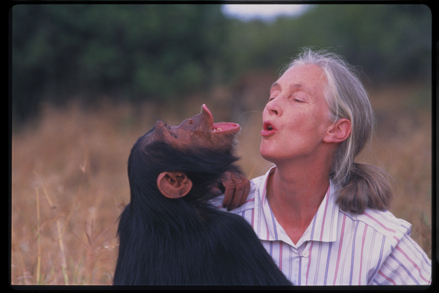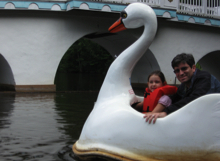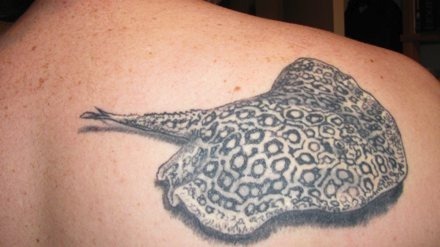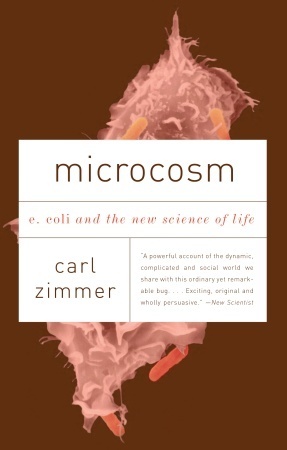Carl Zimmer's Blog, page 117
July 24, 2009
Is There Nothing E. Coli Cannot Do? (Redux)
Scientists tinker with my favorite bug so that it can solve mathematical puzzles.
July 23, 2009
Richard Dawkins Will Be Your Docent Today
Sweet! Richard Dawkins paid a visit to the Explore Evolution museum exhibit I helped put together. Here's the first of a series of videos he filmed while he was there, on the evolution of whales. You can watch the others here.
The Legend of Grandmother Cells Continues
In my June brain column for Discover, I wrote about the bizarre idea that there are single neurons in your head that can respond to individual people. The so-called "grandmother cell" started out 40 years ago as a thought experiment riffing on Philip Roth's novel Portnoy's Complaint. By the 1970s, most neuroscientists considered it more of a joke than a valid concept, but in the years since it hasn't quite gone away.
In my column, I described the work of the work of Rodrigo Quian Quiroga of the U
George Will's Crack Fact-Checkers Continue Their Nap
 There is no way to keep up with all the bad reporting on science these days, but I cannot resist certain egregious cases. As Loom readers know, George Will writing about global warming is one. This morning brings fresh evidence of his trouble with the facts–and, more importantly–the empty claims of the Washington Post's editorial page that they respect the time-honored art of fact-checking.
There is no way to keep up with all the bad reporting on science these days, but I cannot resist certain egregious cases. As Loom readers know, George Will writing about global warming is one. This morning brings fresh evidence of his trouble with the facts–and, more importantly–the empty claims of the Washington Post's editorial page that they respect the time-honored art of fact-checking.
In a nutshell, George Will wrote some columns starting in February in which he claimed that scientific evid
July 22, 2009
AIDS And The Virtues of Slow-Cooked Science
 Chimpanzees get AIDS.
Chimpanzees get AIDS.
This is an important discovery, but what intrigues me most about it is how the discovery was made. It is a story of two kinds of science, both of which are essential to getting a deeper understanding of life, but which today are staggeringly out of balance.
In the 1960s, Jane Goodall carried out some of the first long-term studies on chimpanzees in the wild. Goodall made important observations, noting that chimpanzees can be surprisingly cooperative but also quite violent, wi
July 20, 2009
Music From Science (Writing)
Here is a song by Christine Lavin inspired by my recent firefly story. It is available for two days on her web site (and will resurface this fall on her next CD).
I think this is the second or third time a musician has riffed on something I've written. Listen, for example, to this darker tune based on the wasp that's also a brain surgeon.
A Lot Of Things Happen While You're Riding A Swan Boat
 I spent the past week riding swan boats, roller coasters, and horse-drawn carriages. Every time I come back from a vacation, there's a lot of catching up to do, but I was struck this time around by just how absolutely hopeless it has become to go back and review all the information that piled up while I was gone. I'm pretty sure I'll be able to answer all the questions from editors who puzzled over my inscrutable articles while I was gone. I'll probably be able to get back to everyone who have b
I spent the past week riding swan boats, roller coasters, and horse-drawn carriages. Every time I come back from a vacation, there's a lot of catching up to do, but I was struck this time around by just how absolutely hopeless it has become to go back and review all the information that piled up while I was gone. I'm pretty sure I'll be able to answer all the questions from editors who puzzled over my inscrutable articles while I was gone. I'll probably be able to get back to everyone who have b
July 17, 2009
All Creatures Great And Small, Hosts and Parasites [Science Tattoos]
 Marcus, a parasitologist in Brazil, writes:
Marcus, a parasitologist in Brazil, writes:
I am sending the two scientific tattoos that I have:
1. It is an undescribed species of freshwater stingray from the Family Potamotrygonidae (Potamotrygon sp.n.) that has being described by Dr. Marcelo Rodrigues Carvalho from Universidade de São Paulo.
2. An ectoparasite from needlefish (Belonidae) that I am redescribing. The parasite, Nudaciraxine gracilis belongs to the Class Monogenoidea (Platyhelminthes). This parasite group is characterized by having
July 15, 2009
Microcosm Week: How E. coli Sees The Future
 In my book Microcosm (which has just come out in paperback), I took great pleasure in all the things that something as tiny as E. coli can do. It can survive in frozen soils and stomach acid. It can can build intricate tails which it can then spin hundreds of times a second in order to swim. It can navigate away from the bad and towards the good. It can protect itself from overheating by making just enough protective proteins it needs, with thermostat-like precision. It can survive starvation
In my book Microcosm (which has just come out in paperback), I took great pleasure in all the things that something as tiny as E. coli can do. It can survive in frozen soils and stomach acid. It can can build intricate tails which it can then spin hundreds of times a second in order to swim. It can navigate away from the bad and towards the good. It can protect itself from overheating by making just enough protective proteins it needs, with thermostat-like precision. It can survive starvation
July 11, 2009
Bloggingheads: Robot Superbowls, Oversized Electrons, and Other Thoughts With Chris Mooney
On today's episode of Bloggingheads, fellow Discover blogger Chris Mooney and I talk about Unscientific America: How Scientific Illiteracy Threatens our Future , the new book he has co-authored with his co-blogger Sheril Kirshenbaum. We definitely have our differences, or different emphases, but I hope our argument ended up being enlightening, rather than demolishing.
, the new book he has co-authored with his co-blogger Sheril Kirshenbaum. We definitely have our differences, or different emphases, but I hope our argument ended up being enlightening, rather than demolishing.
One big difference was over high school science education. I just can't see any long-term solution that is superior to doing a bett



